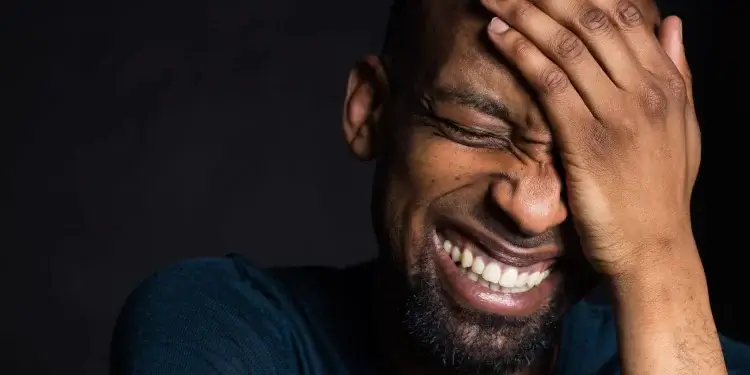“There is something rotten in the state of Denmark…” This is a famous quote from Shakespeare’s Hamlet, and is commonly used to refer to corruption within the system.
As an actor who has some Shakespeare experience and who lives and works in the Kenyan industry, I can say there isn’t a more perfect quote to describe the creative industry in our country. And I can speak with some authority as someone who has worked as an actor and writer for over 20 years. Simply put, our industry is broken. And we all need to talk about it.
During the course of my research for this piece, I found no peer-reviewed statistics for this industry. This absence of data makes it very difficult to accurately track the growth within the industry and chart where we are right now. Still, some things stand out. The number of locally produced shows and films has grown (and continues to grow). Each of these productions hires hundreds of people who work in various capacities. And more and more independent creators are working on getting their shows out to the world. This growth is clear to see for anyone who has eyes, and this is where the problem begins.
We work in a system that lacks the appropriate protections and perks for everyone working within our industry. We all know that growth isn’t reflected as it should. Nyokabi Macharia’s words when she won Best Lead Actress (Film) at Kalasha Awards 2022 spoke to a hope that the growth of the industry would lead to a point where actors could ask for the basic stuff like better working hours and not be looked at like they were insane. That day is further now than it was then. All we have to do is look at the recent incident where actors were assaulted while filming in Kibera and the vitriolic fallout that followed. This fallout – which was led to a so-called “producer” personifying the height of stupidity, inhumanity and ignorance on the internet for all to see – brought many things to the forefront in this conversation, most importantly how we can make this industry better for established stars and emerging talent.
Asking for your rightful dues in this industry is viewed as rebellious. Turn down a low rate, you get called a diva. Ask for your due and for safe working conditions, you get called difficult. Complain about wasted time and maltreatment, you get blacklisted. None of this makes sense, and it certainly doesn’t help the industry to grow. Blacklisting especially irks me, because unless a person is completely impossible to work with (because they don’t align with your values, are a danger to the rest of the cast or are known to be inappropriate), no one should be blacklisted because they are labelled “a diva”.
There have been a number of attempts to bring actors to the table and have them speak with one voice and to champion for better working conditions. These attempts have failed miserably for a number of reasons, and they have made many of us extremely cautious about what a unified actors guild can actually do. Take for instance the rate card that was shared by the Kenya Actors Guild in July dictating what actors in this industry should be paid for various projects. Many were utterly shocked by that rate card. Most laughed. Me… I was angry!
Angry because this was nothing but empty chatter from a guild that has no teeth to enforce this rate card. Angry because no one seems to know WHO THIS FACELESS GUILD IS! What is their mandate? What do they do to provide protection for the actors in the industry? Where can we see their work to create opportunities for actors to grow or expand their knowledge, or even develop some kind of a better life? They are nothing more than a faceless, fangless shadow that makes no significant difference in the life of any Kenyan actor. A guild that was forced to have a special general meeting (SGM) that no one would have attended had the actors not demanded for it.
Meanwhile, we see producers wondering who created this “rate card” and who is supposed to be earning this money. I see an absence of transparency and honesty. Certainly, a rate card must mean something. My initial mistake was to call it nothing but toilet paper with numbers printed on it. I was wrong because at least toilet paper has value. That makes me mad! We watch with awe the striking actors in the US, led by the unwavering SAG-AFTRA, standing side by side with writers, asking for a liveable wage. We read the statistics about the percentage of actors who make enough to pay mortgages, afford medical insurance and simply just survive. Yet we go in to audition for parts, knowing that if we ask for “too much”, someone else will take the role at a lower rate. As actors, our individual needs will always stand above the rest until we can stand up together to make a difference. As the our film and TV industry grows, so does the need for a more unified voice to protect actors and partner with other guilds and unions to support and guide this growth for everyone. We all have a role to play and we shouldn’t be held back by what might happen if this voice is unified.
The time for that is Now!
So what can we do differently? What lessons can we learn from our past? What codes and rules can we set up to protect ourselves and the work we put out? How can we stop complaining aimlessly and vilifying each other and instead come up with real solutions? While speaking with Fidella Kinoti, the talent manager for one of the actors in the aforementioned incident in Kibera, a common theme became clear: the absence of unity under a strong guild is majorly holding us back. Her words: “We must unite to rewrite the script of our industry. By establishing a strong constitution (within a well structured guild), we can stand firm, promoting fair rights, professional growth, and unity among actors. The time has come to seize our destiny and unite as one powerful voice. In the words of Nelson Mandela, ‘It always seems impossible until it’s done.’ We need to forge ahead fearlessly, improving the Kenyan Actors Guild, empowering our fraternity, and transforming the landscape of the film industry.”
The call for unity has been ignored for far too long. First, actors must find a space to speak up and figure out the basics of what unity means. We can call for the change as individuals all we want. We can say that our contracts are individually negotiated and forget about the background actors and everyone who isn’t us. That will only hold us back. The shows, films and projects we work on are built to be an ecosystem that needs numerous voices to work seamlessly. Before we bring the broadcasters and streamers and producers to the table, we must first put aside our petty differences and make the necessary steps to stand together. Because without that, we will remain exactly where we are… underpaid, overworked, under appreciated and forced to listen to ignorant nonsense from people who lack actual knowledge on marketability and the craft.
Enjoyed this article?
To receive the latest updates from Sinema Focus directly to your inbox, subscribe now.











